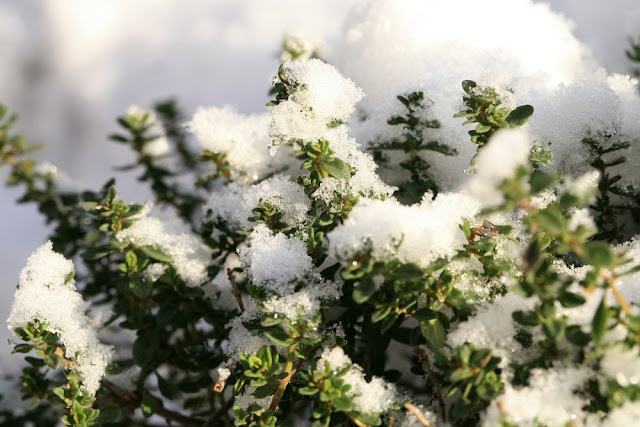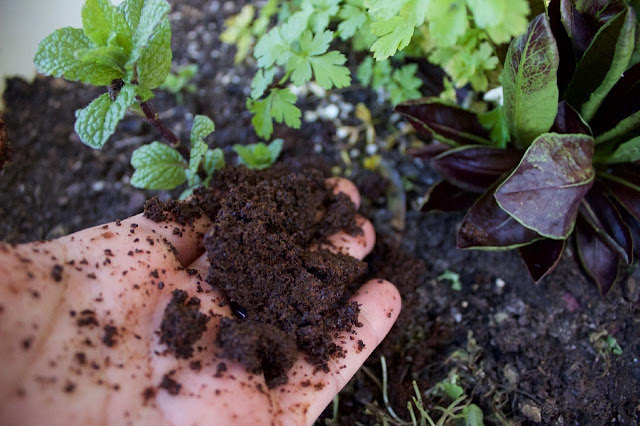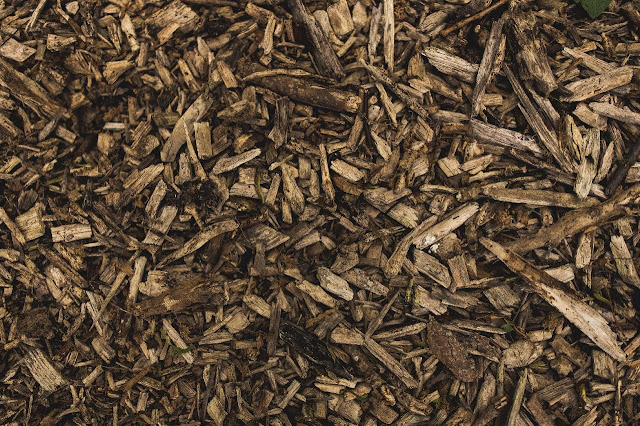 |
| Winterize Your Herb Garden And Save Your Plants |
How to Winterize Your Herb Garden
It’s a horrible feeling to have.
The sadness and pain of watching your herb plants die.
But that’s what happens once the freezing cold of winter hits your garden.
You’ve enjoyed the fragrance, flavor, and beauty of herbs during the growing seasons of spring, summer, and fall.
But now it seems the time has come to say goodbye.
Is there something you could do for your lovely herb plants? Something that could help them survive the winter? Or at least give them a new beginning in the next growing season?
Thankfully there is.
Winterizing your herb garden can help protect your herb plants, extend their life, and even help them grow back the next season.
What is winterizing?
Wouldn’t it be nice to help your herb plants through winter? Maybe taste some herbs even during the winter?
That’s what winterizing your plants can help you with.
But is this really possible? Can you get your herb plants to survive the harsh winters in your region?
Let’s take a look at some steps you can take to give this your best shot.
Know your hardiness zone
The first thing to do is find out the hardiness zone of the region you live in.
That’s made a little bit easier by the United States Department of Agriculture (USDA) with their hardiness zone map.
This map of the United States divides it into 13 zones where the temperature varies on average by 10 degrees. Zone 13 is the warmest while Zone 1 is the coldest.
You can take a look at this USDA hardiness zone map here. You can even put your zip code and it will show you the hardiness zone of your area.
But how does knowing the hardiness zone help your herb garden?
Know the hardiness of the herbs you grow
Each herb plant you grow is suited for a particular hardiness zone. That’s what we call the hardiness of the herb plant.
If you plant the herbs in a region with their hardiness zone, they have a better chance of surviving the winter.
But how do you know the hardiness of your herb plants?
If you buy a packet of seeds, it should have the information about hardiness on the packet. Or you could search for the plant hardiness on Google and you’ll get your answer with ease.
But what if you want to grow herbs that don’t thrive in the hardiness zone of your region?
Don’t worry. You can grow those herbs as well. You just need to give them a little extra care during the cold winter.
Allow your herbs to adjust before winter
Winterizing your herbs starts a lot before winter.
As soon as early August, it’s time to stop fertilizing and pruning your herbs.
Adding fertilizer to your herbs will give them fuel for new growth. The same also happens if you prune your herbs too much. It encourages them to sprout new shoots.
Having new growth just before winter is not OK. It does not allow the herb plants to prepare themselves for the coming winter.
Heavy pruning will leave the herb plants with cuts that need to heal. Not a good thing to do when winter is just around the corner. The plants won’t be able to adapt well to the cold because they spent all their energy on healing.
You can do some light pruning and harvesting of herbs in the fall without any problem.
During the fall, it’s a good idea to water your herb plants well especially if the soil tends to dry out. Plants that are stressed for water won’t do well to adjust for the cold winter.
 |
| But be careful not to overwater the soil |
But be careful not to overwater the soil as that can cause drainage problems and decrease winter hardiness in the herb plants.
You should also remove dead, diseased, damaged plants and leaves from the garden. This will help your herb plants stay free of pests and diseases during the winter.
Related: Indoor Plants to Grow This Spring
Protect your herbs during winter
Congratulations. You’ve done all you could to help your herb plants adjust for the coming winter.
But that’s only the beginning. There’s a lot more to be done as the frost begins and winter approaches.
Annual herb plants have a lifecycle for one growing season from seed to flower and seed. These plants tend to die in winter and there’s not much you can do.
You can try to grow these indoors in winter. As long as you provide them with the right temperature and light, they’ll grow well and give you herbs to harvest.
Perennial herb plants continue to grow every year as long as you take good care of them. As winter arrives, the top part of such plants will die but the roots will survive. And the plant will grow back from those roots in the next growing season.
Many perennials are quite winter hardy and can survive a harsh winter with the right protection of their roots.
Mulching your perennials with pine straw, bark, leaves, or sawdust during winter is a great way to protect them from heaving that occurs by frequent freezing and thawing of the soil.
Apply a mulch that is 3 to 6 inches thick as soon as the herb garden starts to freeze.
If the mulch gets compressed due to a blanket of snow, remember to fluff and loosen it. Once the growing season arrives and new growth starts, it’s best to take the thick mulch off.
There are some perennials like Rosemary and Hyssop that are tender. It means they might not be strong enough to survive a harsh winter in your hardiness zone.
You can protect such tender perennials by trimming them to a few inches and covering them with soil. Then add the 3 to 6 inches thick layer of mulch on top.
You can also protect these tender perennials by planting them in containers and bringing them indoors for the winter.
Conclusion
Winterizing the garden is a great choice to help your herb garden survive the winter and grow back the next season.
Growing your herbs indoors will help you enjoy them even during the winter.
And you can do this winterizing without spending a lot of time, energy, and effort.
Just understand what herbs you want to grow, how the winter affects them, and take the necessary steps.
So give your herb garden some love and care during winter.
You know you care about them. And they’re worth the effort.
Author: Kevin Rodrigues is the founder of Gardening Mentor where he teaches beginners to grow their own organic food in a limited space.



